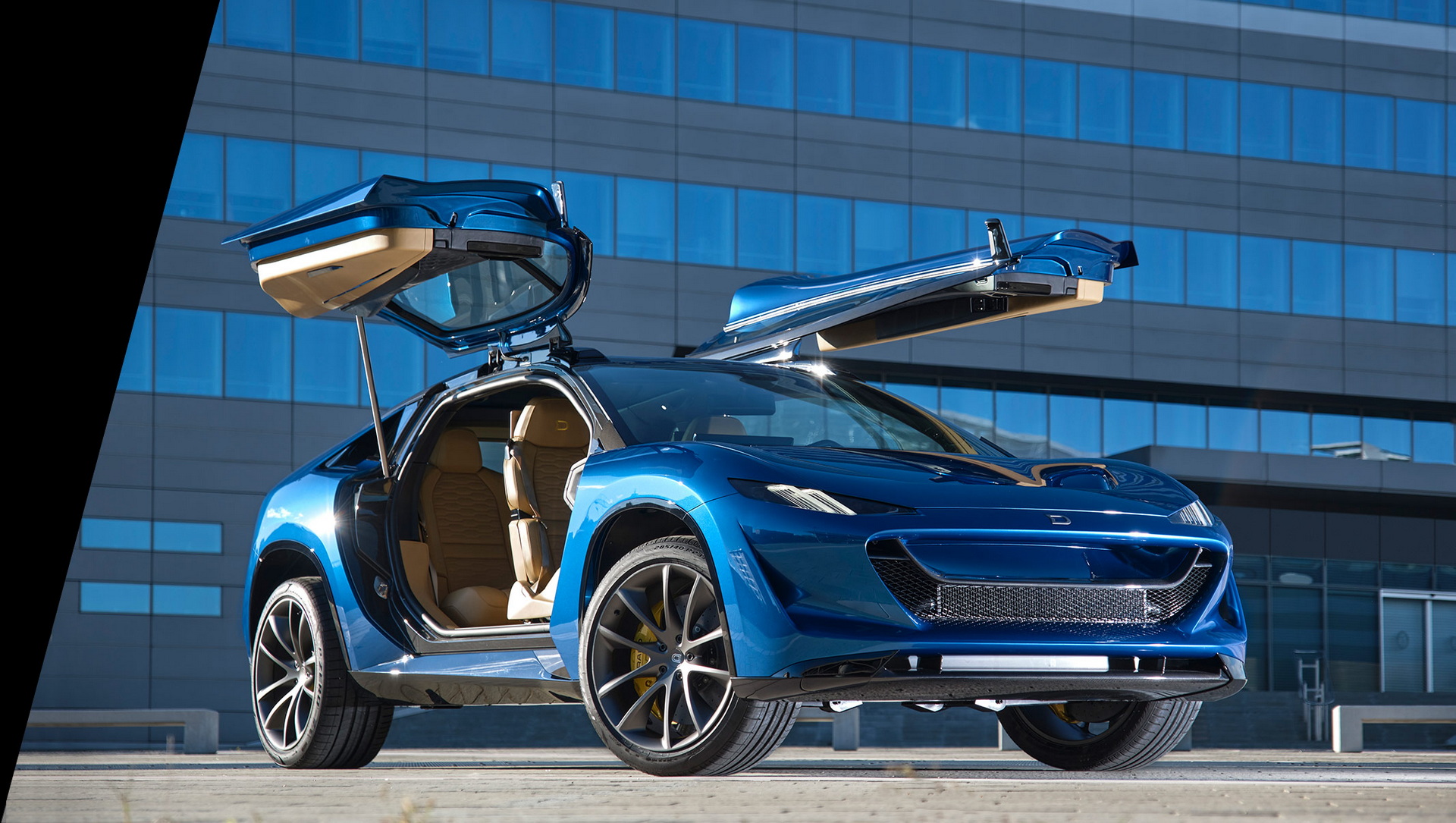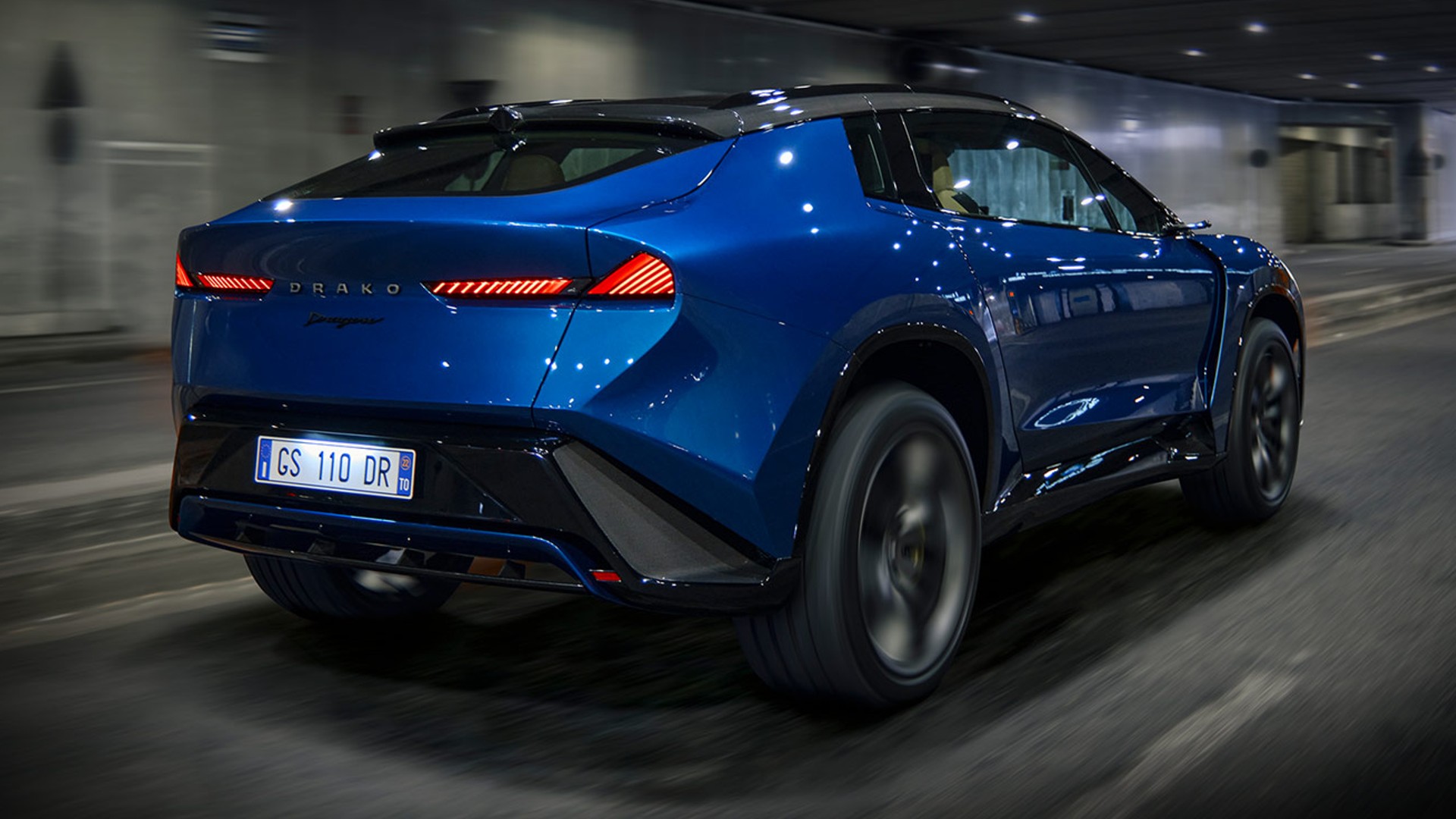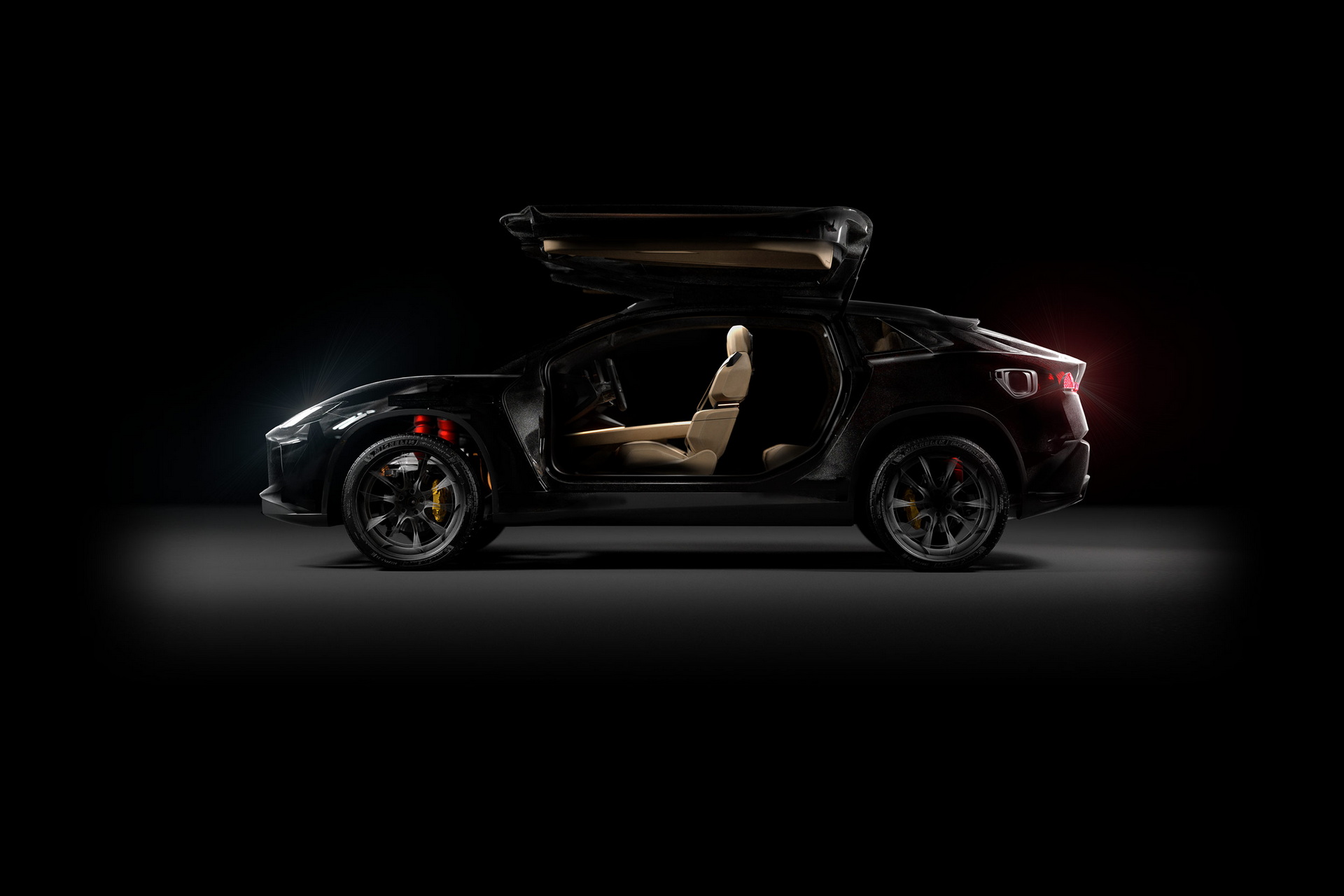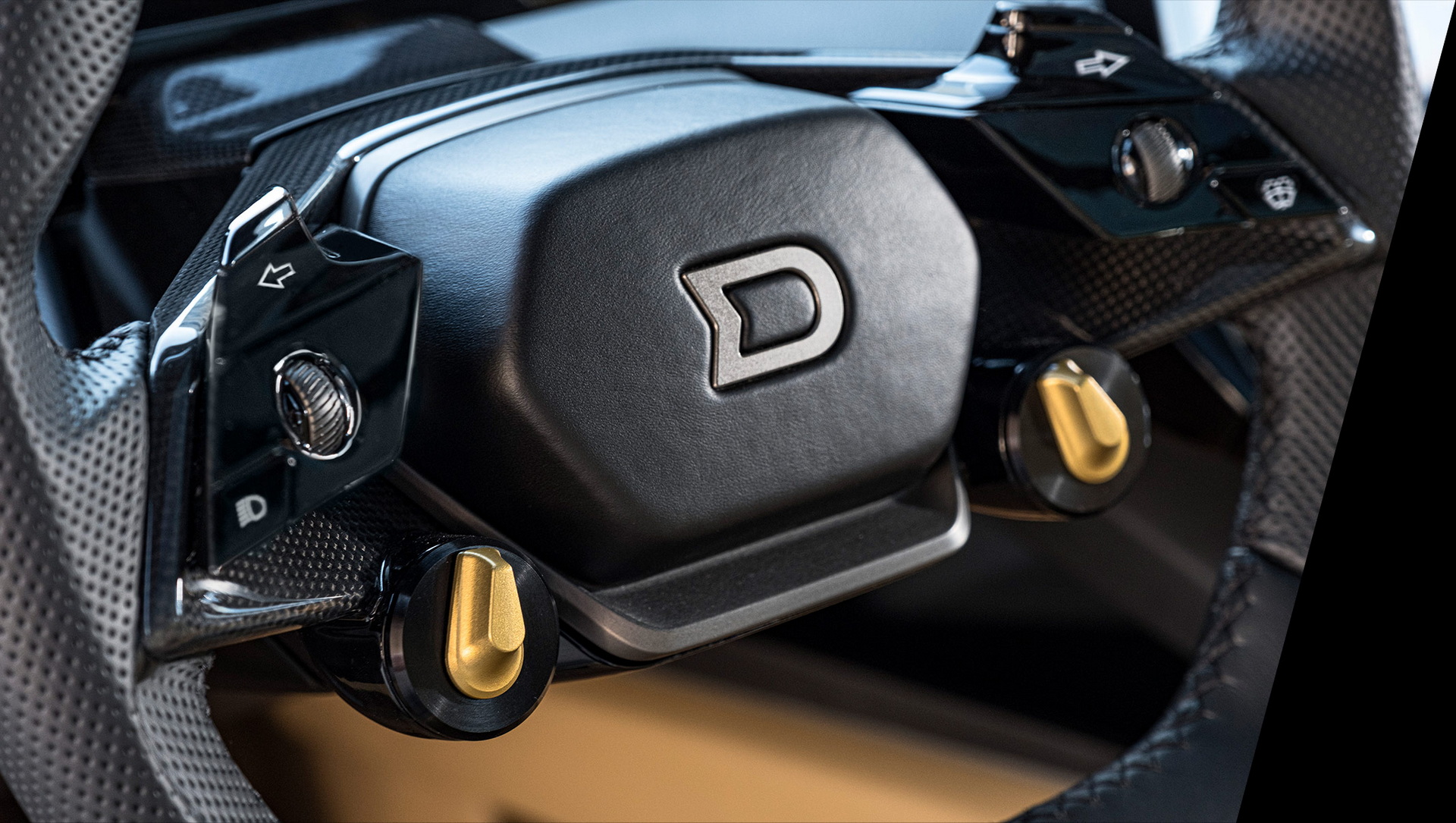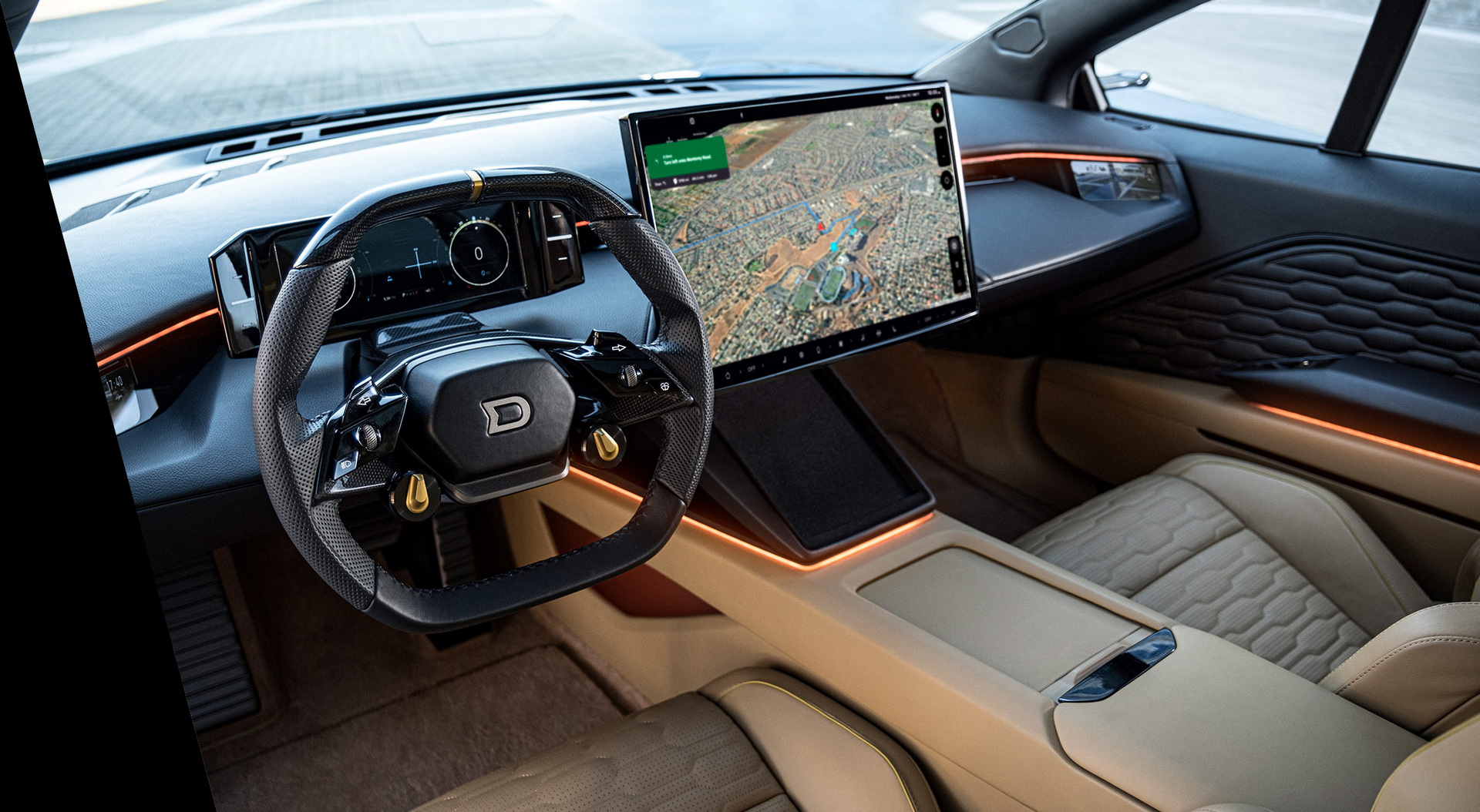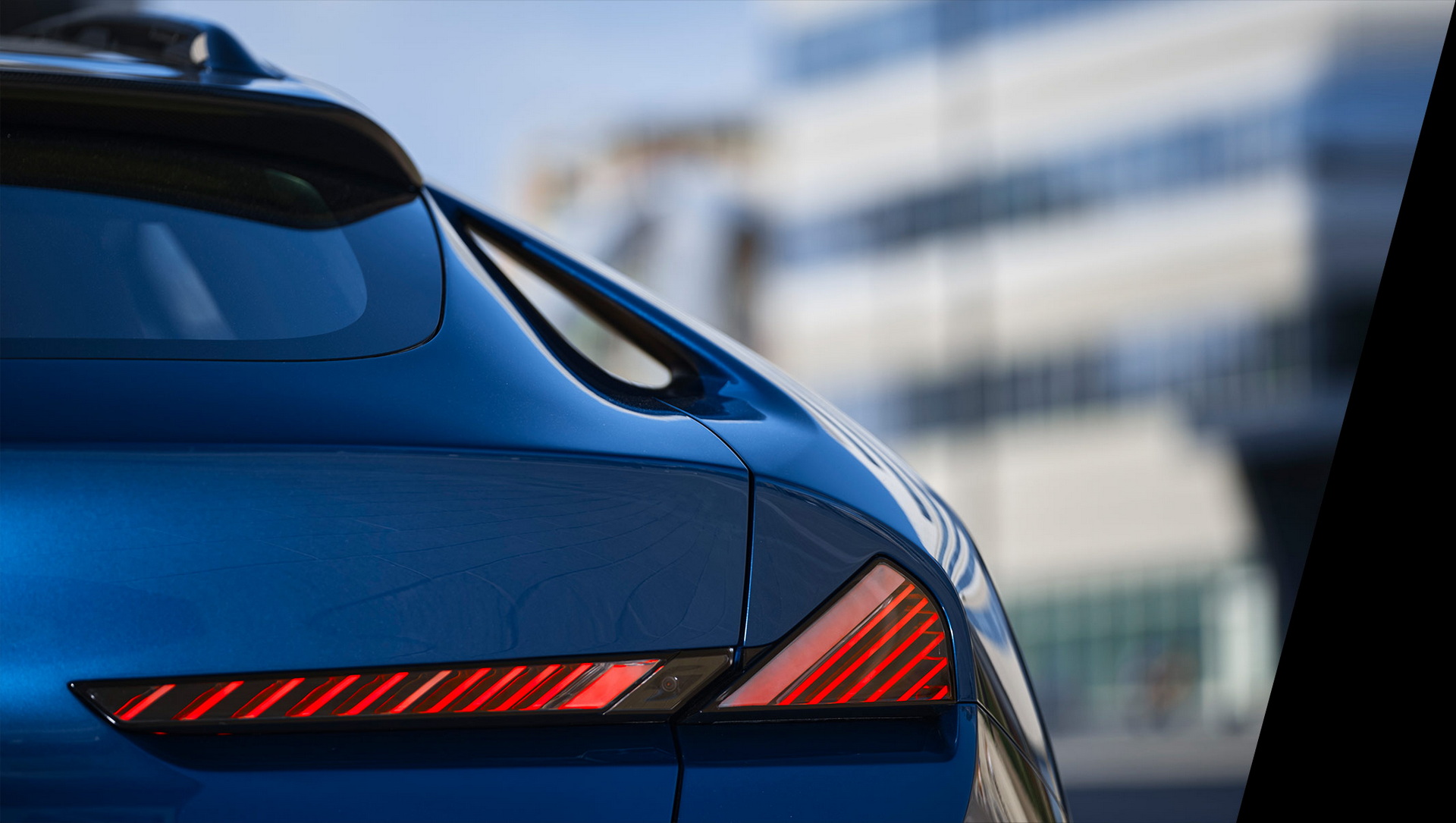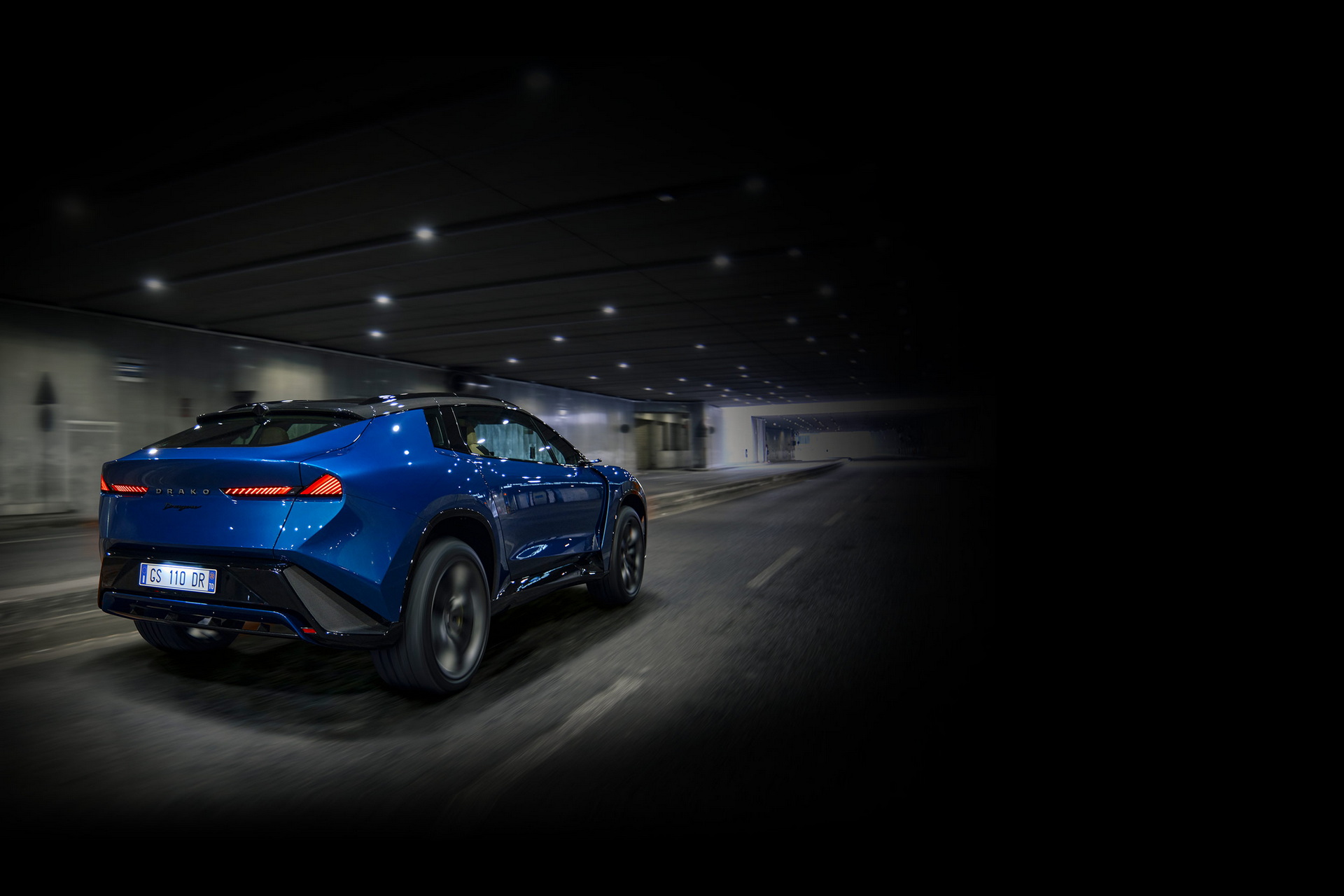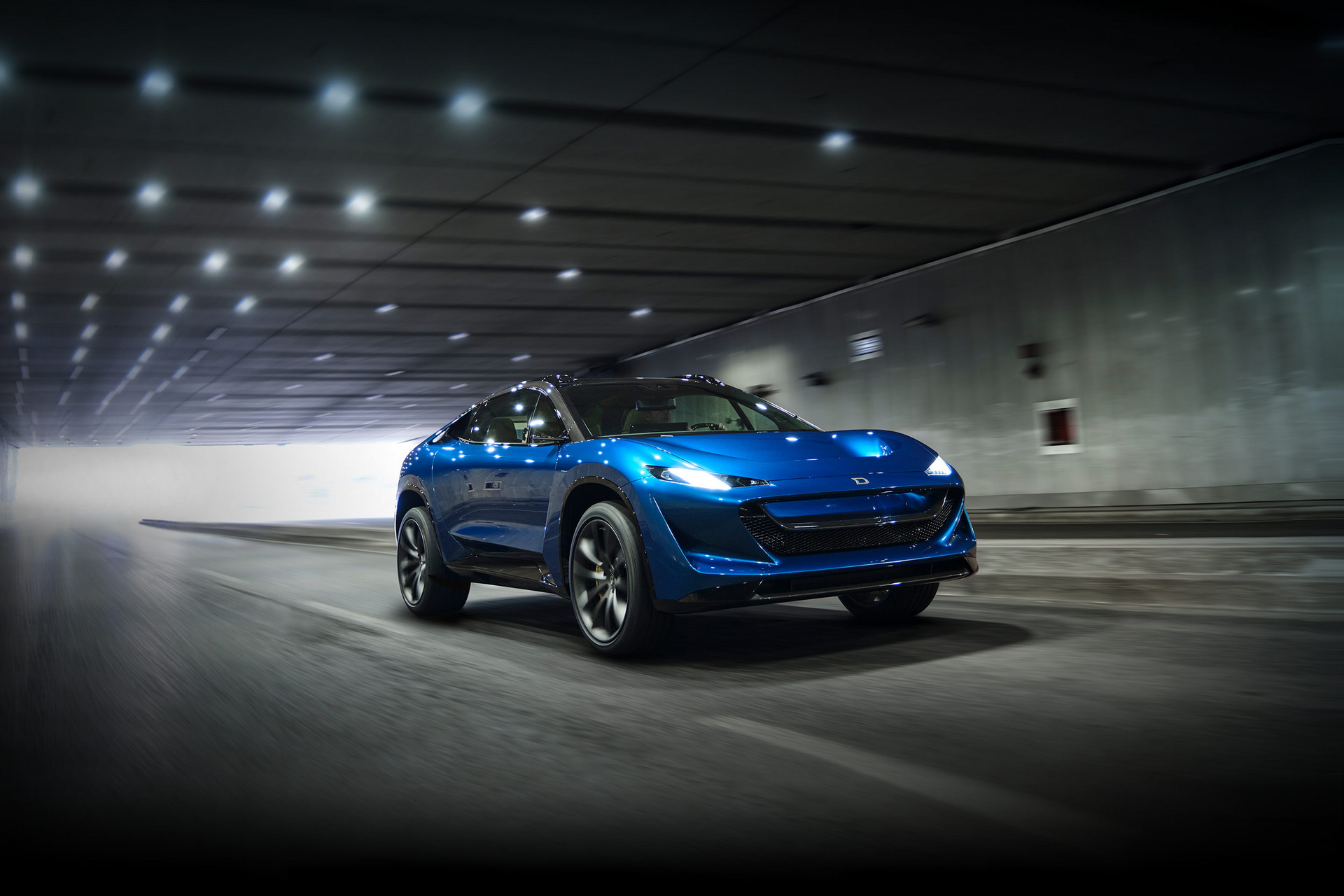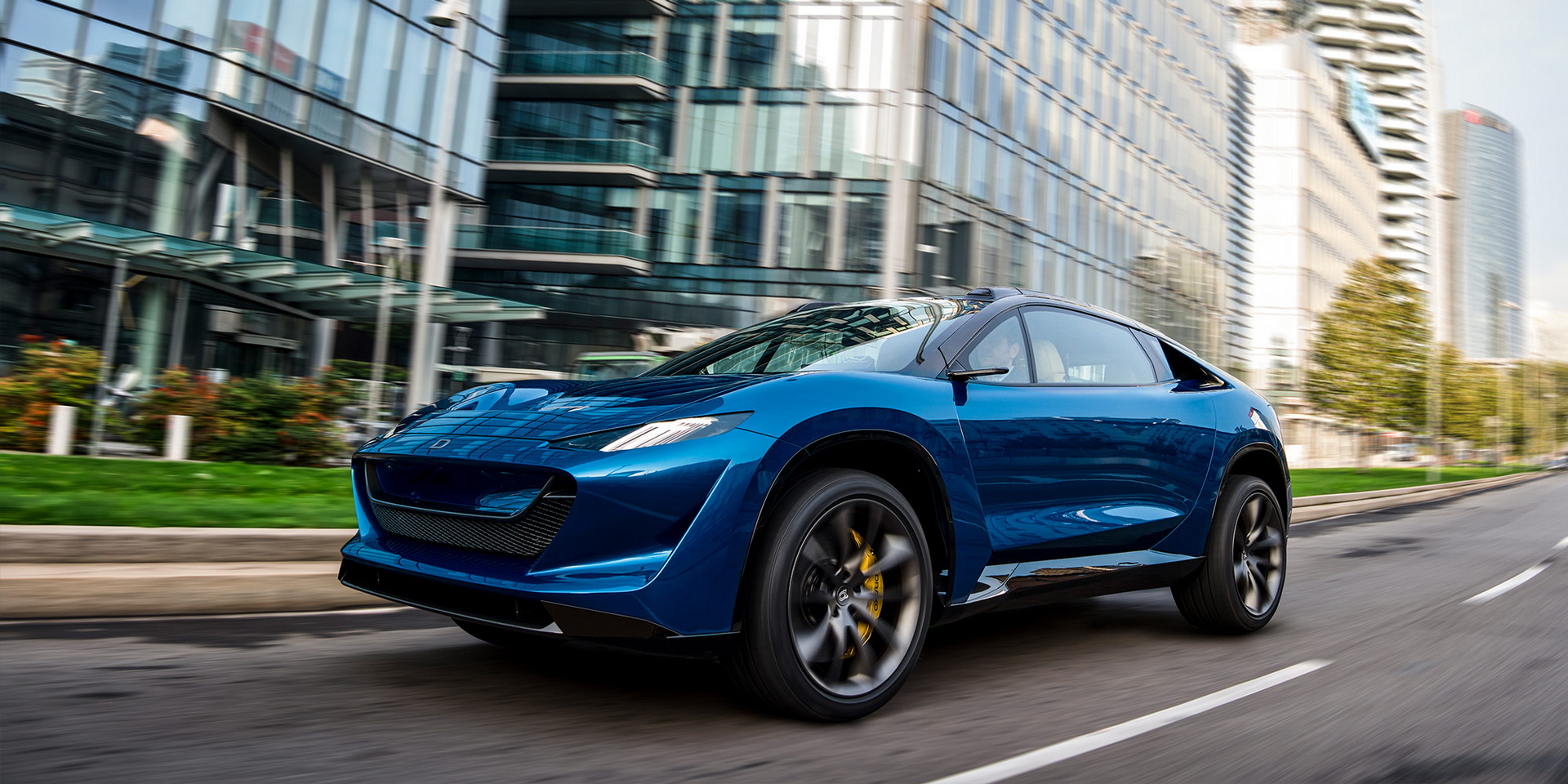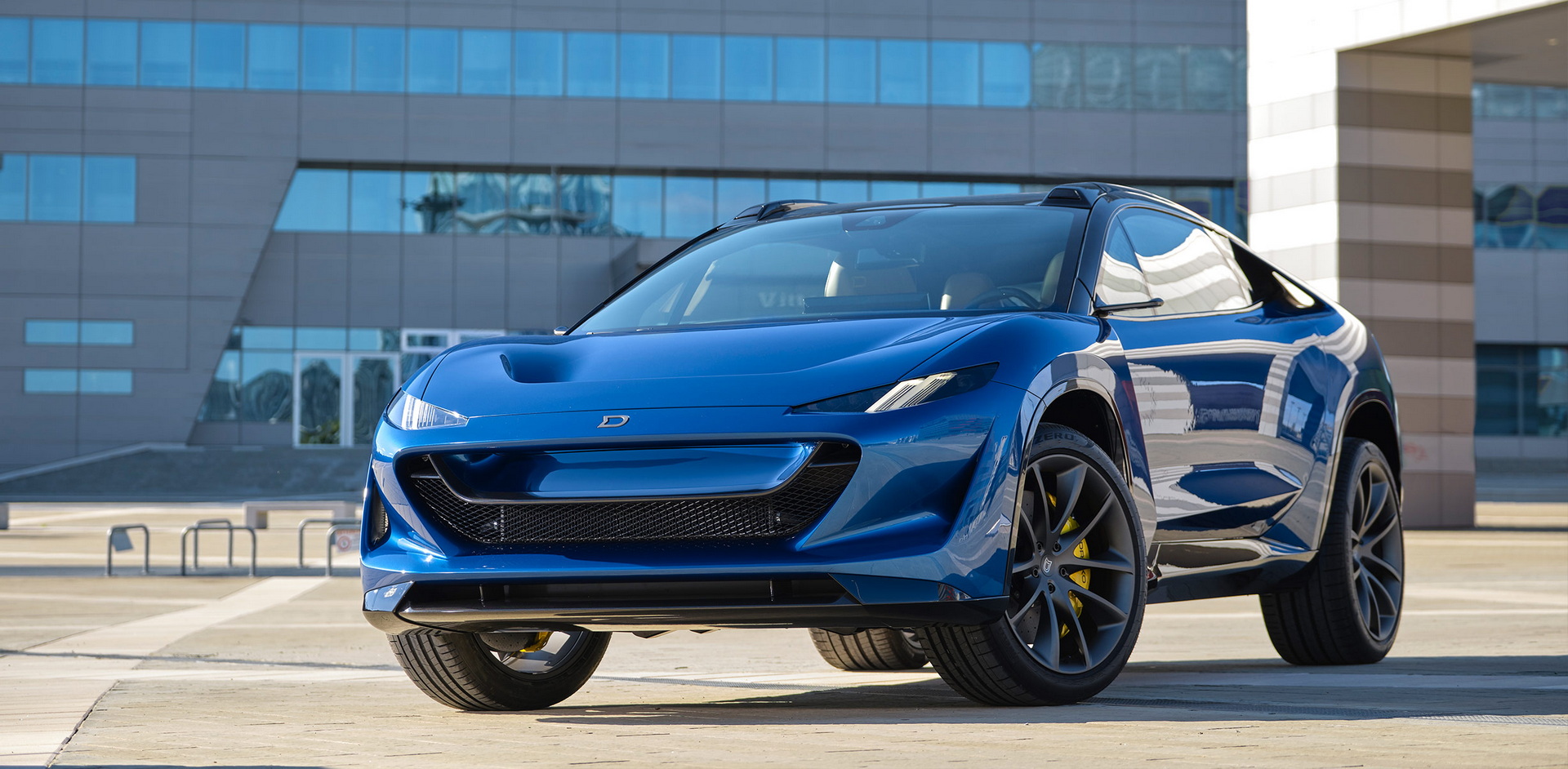California-based startup Drako has taken the wraps off its second production model, a fully electric hyper-SUV that is called the Dragon. The follow-up to the Fisker Karma-based Drako GTE is based on a carbon-fiber monocoque, with a quad motor powertrain producing a monstrous 2,000 hp.
The Drako Dragon measures 199 inches (mm) long, 81 inches (mm) wide, and 63 inches (mm) tall, with a curb weight of 4,969 pounds (2,254 kg). This makes it slightly longer, wider, and shorter than the Tesla Model X while weighing 562 pounds (255 kg) less than the heaviest P100D.
Drako’s first SUV was designed by Lowie Vermeersch and his GranStudio team in Italy, featuring two large gullwing doors, a coupe-style roofline, 23-inch alloy wheels, and aggressive aero including a hole in the grille that leads out to the bonnet and flying buttresses.
Inside the five-seater cabin, there is a massive 17.1-inch touchscreen for the infotainment, a smaller digital instrument cluster, two screens for the mirror-replacing cameras, and two equally large tablets on the seatbacks for the rear passengers.
The company claims that the Dragon is “the most powerful, quickest, and fastest production hyper-luxury SUV in history”. Indeed, with a combined output of 2,000 hp, a 0-60 mph (0-97 km/h) acceleration in 1.9 seconds, a 9-second quarter mile, and a top speed of over 200 mph (322 km/h), it easily outperforms any other production SUV with ICE, hybrid, and EV powertrains.
For comparison, the Tesla Model X Plaid which is the current holder of those titles produces 1,020 hp, accelerates from 0-60 mph (0-97 km/h) in 2.5 seconds, does a 9.9-second quarter mile, and tops out at 163 mph (262 km/h). We must note though that Tesla’s numbers have been confirmed in real life, while Drako has only given us estimates since the Dragon is not yet in production.
The model is based on a carbon-fiber structure that according to Drako saves 50 percent of the chassis weight while offering twice the structural rigidity compared to a conventional SUV. The floor-mounted battery is good for 420 miles (676 km) of estimated EPA range, and supports 500 kW charging, although Drako didn’t give us the capacity.
The adaptive suspension changes the ground clearance depending on the selected mode, with 6.4 inches (163 mm) on Tarmac, 8.4 inches (213 mm) on Cruise, and up to 2.4 inches (315 mm) on Overland. The carbon ceramic rotors measure 420 mm (16.5 inches) with ten-piston calipers at the front and 410 mm (16.1 inches) with six-piston calipers at the rear.
The Drako Dragon has a list price of $290,000 which is surprisingly low compared to the $1.25 million asking price of the Drako GTE. The company has already started accepting reservations for a refundable $500. If you want the First Edition, this is limited to 99 units with a $5k reservation fee. Deliveries of the Drako Dragon are not expected before 2026, with a planed production of 5,000 units per year.





